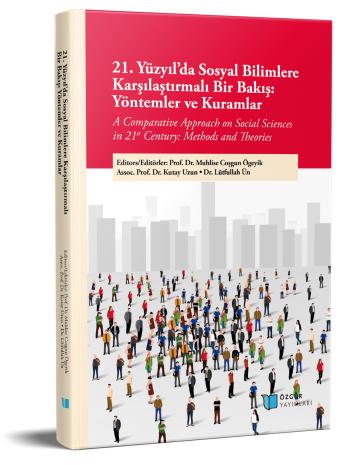
A Comparative Approach on Social Sciences in 21st Century: Methods and Theories
Synopsis
The 21st century has brought with it challenges and opportunities that require a new perspective on the study of phenomena in every field. While traditional approaches are still valid, they are faced with the need to adapt and expand with the rapid pace of change. In the ever-changing environment of the 21st century, studies in the field of social sciences are gaining new dimensions. As we navigate the complexities of a globalized world, technological advances, and shifting cultural paradigms, our understanding of human behavior, societies, and their complex interactions becomes even more important. This book delves into a variety of emerging approaches and theories in the social sciences and provides a comprehensive survey of the ways we understand and analyze the intricacies of human interaction and social structures. The chapters in the book aim to offer a nuanced look at the multifaceted approaches that academics, researchers and thinkers use to make sense of our dynamic world.
As it is known, societies are not static entities; they are shaped by historical trajectories, power dynamics, and cultural narratives. In this book, how the paradigms introduced in the 21st century affect the world of science is discussed from different perspectives, with comprehensive narratives about how the 21st century raises marginalized voices and reflects the true diversity of human experiences.
The 21st century, in which we observe the intense effects of globalization, provides the basis for global interconnectedness studies to gain importance, although it blurs geographical boundaries. With the chapters in the book, we embark on a journey through the ever-expanding landscape of social sciences. Each approach and theory presented here offers a unique lens through which we can view the complex fabric of human society. The 21st century presents both challenges and opportunities, calling us to refine and redesign our methodologies, bridge disciplines, and embrace the complexity of the world we live in.
Let us approach the study of social sciences in the 21st century with curiosity, humility, and dedication to unraveling the mysteries that shape our lives. As we navigate uncharted territories of human thought and interaction, this journey is bound to be illuminating and even transformative.

